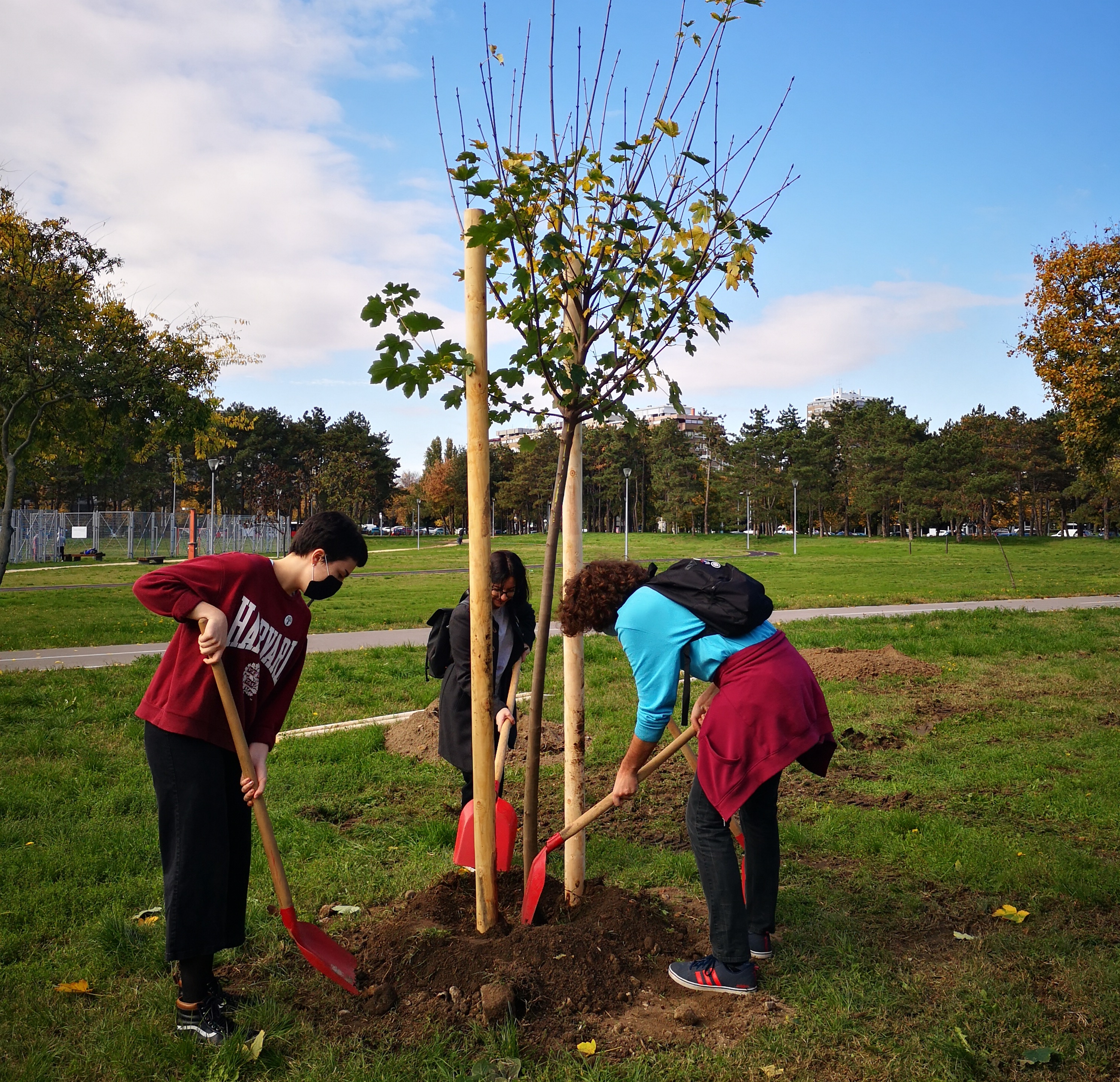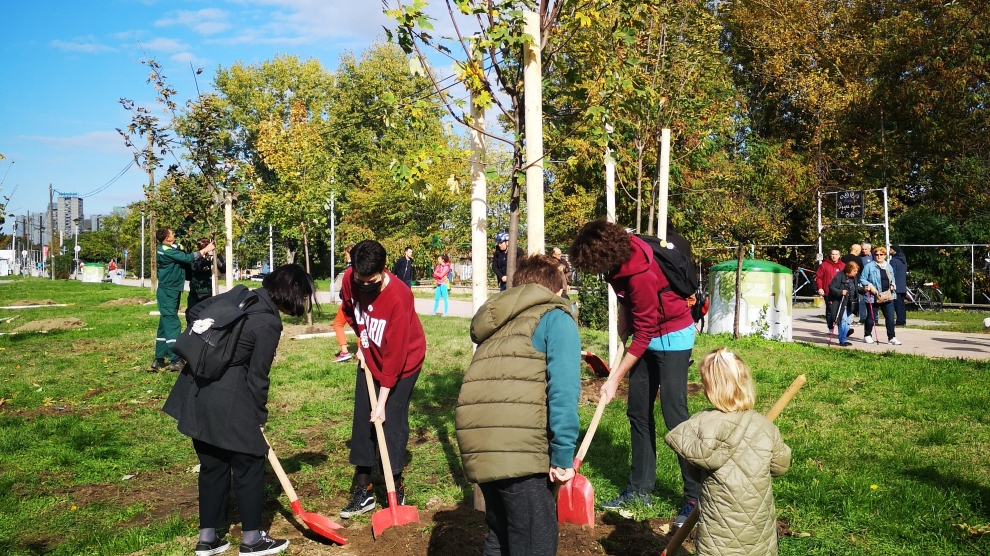Six Western Balkan capitals – Belgrade, Skopje, Prishtina, Tirana, Podgorica and Sarajevo – and 400 trees planted simultaneously. One goal – to prove that, by taking individual responsibility, one can make a difference at both a local and regional level.
“We at the European Fund for the Balkans (EFB) started to monitor our CO2 emissions last year. The damage we have caused with our business-related flights was 9.3 tonnes of CO2, which is 388 trees,” Aleksandra Tomanić, EFB executive director, tells Emerging Europe.
“So, we decided to plant 400 trees in the capitals of the Western Balkans this year. Of course, we will not save the world, but we want to be conscious about our own responsibility and maybe inspire others to start monitoring and to at least be aware about the damage we all cause ‘just flying to a conference’. Of course, 2020 and the [Covid-19] pandemic have also changed that perspective.”
Ongoing, pandemic-related circumstances prevented EFB from involving ordinary citizens in its efforts, as was initially planned, but the main message remains, namely the importance of every individual’s decisions, such as the choice of an environmentally-conscious means of transportation, for the sake of helping oneself and others.

Instead, in each of the six capital cities, EFB partnered with local initiatives and movements that are already dealing with environmental issues and air pollution: Za čisto i lijepo Sarajevo (For a Clean and Pretty Sarajevo) from Sarajevo, the Environmental Territorial Management Institute from Tirana, Sbunker from Prishtina, Skopje Smog Alarm, Air Care and Treebank from Skopje, OZON from Podgorica, and Right to the City, Ne davimo Beograd, The Forest Sings (Suma peva) and Streets for Cyclists from Belgrade. And because six countries are involved, they called the initiative Trees of Friendship.
“For us, our responsibility, and this regional dimension is important. All cities of the region figure prominently on the global top 10 list of the most polluted cities each winter. And we want to raise awareness that we share this burden across the whole region. Maybe we can contribute a bit, that we start understanding that we have so much more in common, we have problems that might unite us, although for decades we have heard how different we all are,” adds Ms Tomanić.
As Tomanić points out, the Western Balkans capitals rank high on the list of the world’s most polluted cities. Any steps towards reducing pollution and minimising the impact on the environment count. Tree planting seems to be one of the simplest ways of going about that.
—
Unlike many news and information platforms, Emerging Europe is free to read, and always will be. There is no paywall here. We are independent, not affiliated with nor representing any political party or business organisation. We want the very best for emerging Europe, nothing more, nothing less. Your support will help us continue to spread the word about this amazing region.
You can contribute here. Thank you.


